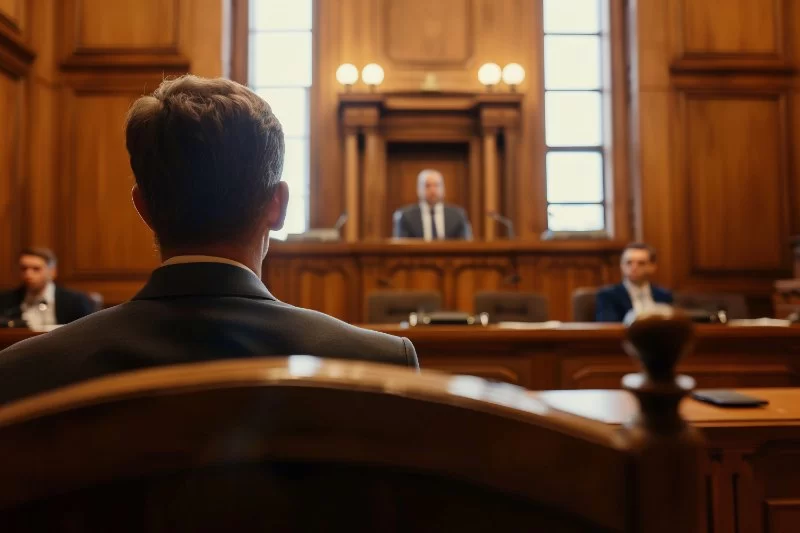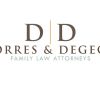- why-witness-testimony-is-crucial-in-criminal-trials
- types-of-witnesses-and-their-roles
- how-credibility-determines-impact
- the-challenges-of-eyewitness-reliability
- expert-witnesses-and-technical-evidence
- cross-examination-and-defense-strategy
- real-cases-that-shaped-legal-understanding
- how-fred-miller-lawyer-approaches-witness-testimony
1. Why Witness Testimony Is Crucial in Criminal Trials
In nearly every criminal trial, witness testimony is one of the most powerful forms of evidence presented to the jury. Understanding the role of witness testimony in criminal trials means recognizing that a person’s words—spoken under oath—can heavily influence whether a defendant is found guilty or innocent. Witnesses can provide details that physical evidence cannot, offering human perspective and emotional weight to a case.
However, that same power makes witness testimony one of the most scrutinized elements of the justice process. Judges, attorneys, and jurors must determine not just what is said—but how believable it is.
2. Types of Witnesses and Their Roles
Eyewitnesses, expert witnesses, and character witnesses
There are several types of witnesses commonly called to testify in a criminal trial, each serving a distinct role in shaping the narrative of the case:
- Eyewitnesses: Individuals who personally observed the crime or key events surrounding it.
- Expert witnesses: Professionals—such as forensic analysts, psychologists, or medical examiners—who provide specialized knowledge to help the court interpret technical evidence.
- Character witnesses: People who testify about the defendant’s reputation, integrity, or behavior in the community.
Each type of testimony brings different strengths and vulnerabilities to the courtroom. The credibility and clarity of these witnesses can dramatically shift the outcome of a trial, which is why their preparation is essential.
3. How Credibility Determines Impact
The human element of justice
Witness credibility often becomes the cornerstone of a criminal trial. Juries naturally place weight on how trustworthy, consistent, and confident a witness appears. A witness who hesitates, contradicts themselves, or seems rehearsed can lose the jury’s confidence, even if their story is true.
Attorneys from Fred Miller Lawyer emphasize that credibility is built not only on facts but on perception. A witness’s tone, posture, and ability to recall details all shape how their testimony is received. That’s why attorneys meticulously prepare witnesses through mock examinations—anticipating questions, clarifying memories, and ensuring they understand the gravity of their role.
4. The Challenges of Eyewitness Reliability
When memory meets pressure
One of the most debated aspects of witness testimony in criminal trials is eyewitness reliability. Psychological studies have shown that memory is far more malleable than most people realize. Factors like lighting, stress, weapon visibility, and time delays can all distort what a person remembers.
Wrongful conviction data from organizations like the Innocence Project show that mistaken eyewitness identification has been a leading cause of overturned convictions. This underscores the need for careful cross-examination and the introduction of corroborating evidence such as video footage, DNA, or digital records to validate testimony.
5. Expert Witnesses and Technical Evidence
Bridging law and science
Expert witnesses serve a critical purpose: translating complex, technical information into understandable terms for the jury. Whether it’s forensic DNA analysis, ballistic testing, or mental health evaluation, experts ensure that the court can make informed decisions based on evidence rather than speculation.
However, expert testimony is not infallible. Opposing counsel may challenge an expert’s credentials, methodology, or potential bias. At Fred Miller Lawyer, attorneys often emphasize how selecting credible, experienced experts can make or break a defense strategy, especially in high-stakes criminal cases.
6. Cross-Examination and Defense Strategy
The art of questioning
Cross-examination is one of the most dynamic parts of a trial, designed to test the accuracy, consistency, and honesty of a witness’s testimony. Defense attorneys use this opportunity to reveal contradictions or biases and to introduce doubt in the minds of jurors.
For example, if a witness claims to have clearly seen the suspect at night from 50 yards away, an experienced defense lawyer might highlight how lighting conditions or emotional stress could have impaired perception. Such moments can shift the balance of a trial by reframing what the jury believes to be reliable truth.
7. Real Cases That Shaped Legal Understanding
When witness testimony determined fate
Consider the case of State v. Henderson (New Jersey, 2011), which redefined how courts evaluate eyewitness reliability. The ruling required judges to consider scientific evidence about human memory before admitting eyewitness identification in court. This landmark decision reflected growing awareness of how psychological factors influence testimony.
In another high-profile federal case, a key witness’s inconsistent statements led prosecutors to reassess the credibility of their evidence, ultimately resulting in a plea bargain instead of trial. These examples highlight both the power and fragility of witness testimony within the justice system.
8. How Fred Miller Lawyer Approaches Witness Testimony
Precision, preparation, and protection
At Fred Miller Lawyer, witness preparation is treated as both an art and a science. The firm’s attorneys focus on clarity, truthfulness, and confidence—ensuring each witness understands how their testimony fits into the broader defense strategy. Whether challenging unreliable testimony or preparing a client for the stand, their approach is grounded in experience and empathy.
Understanding the role of witness testimony in criminal trials isn’t just about knowing the law—it’s about recognizing the human stories behind every case. Witnesses can illuminate truth or distort it, often unintentionally. The key lies in meticulous legal guidance and transparent storytelling—both of which are hallmarks of the work done by Fred Miller Lawyer to uphold justice and protect client rights.


 linda kerns
linda kerns detorres and degeorge
detorres and degeorge attorney gilbert fisher
attorney gilbert fisher horwitz horwitz & associates reviews
horwitz horwitz & associates reviews 21430 cedar dr sterling va 20164
21430 cedar dr sterling va 20164 arnold & porter kaye scholer llp
arnold & porter kaye scholer llp